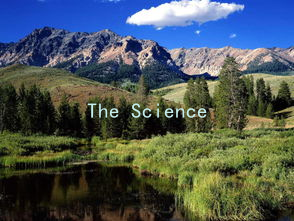The Science of Sex: How Understanding Desire Can Strengthen Your Relationship
In todays fast-paced world, relationships often face numerous challenges that can hinder intimacy and connection. One crucial aspect that can greatly influence the quality of a relationship is understanding desire—both our own and that of our partners. By exploring the science of sex and desire, couples can strengthen their bonds and foster a more fulfilling partnership.
Desire is not merely a biological impulse; it is deeply rooted in emotional and psychological factors. Understanding the different types of desire—such as spontaneous and responsive desire—can help partners navigate their sexual relationships. Spontaneous desire is characterized by sudden sexual urges triggered by external stimuli, while responsive desire develops in response to intimacy and emotional connection. Recognizing these differences allows partners to address mismatches in their sexual appetites without feeling rejected or inadequate.
Communication plays a key role in exploring and enhancing desire. Couples must create a safe space where they can openly discuss their desires, fantasies, and preferences without fear of judgment. This transparency can lead to a deeper understanding of each other’s needs and enhance emotional intimacy. For instance, discussing what makes you feel desired or how your partner likes to be approached can open up avenues for greater connection.
Moreover, understanding the psychological components of desire—such as attraction, arousal, and fantasy—can lead to more fulfilling sexual experiences. Attraction is influenced by physical appearance, but emotional connection plays an equally significant role. Building emotional intimacy through shared experiences and vulnerabilities can heighten sexual attraction. Engaging in date nights, intimate conversations, or fun activities together can reignite the spark and foster deeper connections.

Another important factor in enhancing desire is exploring the concept of novelty. Engaging in new and exciting activities together can reignite passion and strengthen emotional bonds. Trying new experiences, whether its a hobby, travel destination, or even different sexual activities, can stimulate arousal and lead to a deeper understanding of one another’s desires.
It’s also essential to acknowledge that desire can fluctuate. Life stressors such as work, parenting, or financial issues can impact sexual desire. Rather than approaching this as a problem, couples should view it as a natural cycle that requires patience and understanding. This means being supportive and proactive in finding ways to reconnect during these periods, whether through physical affection, emotional support, or intentional time set aside for intimacy.
Moreover, understanding the impact of hormones on desire can shed light on some of the changes couples experience throughout their relationships. Factors like stress, hormonal fluctuations, and aging can all influence libido. Couples should be informed about these changes and willing to adapt their approach to each others needs over time.
Ultimately, the science of sex and desire highlights the importance of both communication and emotional intimacy in fostering a healthy relationship. By understanding and empathizing with each others desires, couples can work together to enhance their connections, both physically and emotionally. This shared journey not only cultivates a more fulfilling sexual relationship but also strengthens the foundation of trust and intimacy that is crucial for long-term partnership success.





